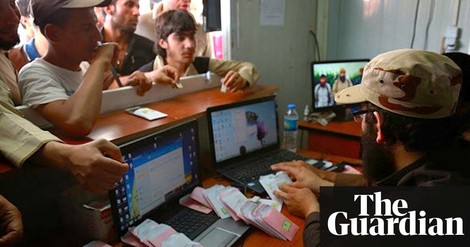Your podcast discovery platform
Curious minds select the most fascinating podcasts from around the world. Discover hand-piqd audio recommendations on your favorite topics.

piqer for: Globalization and politics Global finds
Freelance journalist based in Istanbul. Keeping an eye on Turkish politics and development.
Isis Administration Of Mosul Was Efficient And Excellent According To Witnesses
'Cities at war' is a series of long-reads published by The Guardian that explore the reality of war in cities today. Because war is no longer fought on battlefields, but in densely populated areas.
In this piece, Gaith Abdul-Ahad explains 'the bureaucracy of evil,' how the Islamic State attempted to prove its legitimacy by transforming into a state. Through the testimony of people living in Mosul at the time, and the diary written by a former missile engineer, Abdul-Ahad gives an account of how the Islamic State ran Mosul.
In the early days, in June 2014, Mosul seemed at peace. However, soon enough the 'new gunmen' started to act as a kind of 'shadow government,' demanding taxes and extorting a percentage from every public contract. Those who refused were kidnapped and shot. After Mosul fell, Isis attempted to transform into a state, claiming its legitimacy. The first manifesto arrived, banning cigarettes and insisting women stay at home. It was only the first step of what Abdul-Ahad describes as an attempt to build a 'utopian state' by using the utmost brutality. But violence wasn't enough. Every state needs a functioning bureaucracy to survive.
The piece describes the plan carried out by Isis in pursuing its legitimacy, with extensive census in the city, purges, and forced disappearances. Once Mosul had become a 'giant prison,' the group created new government structures, a hybrid between a modern-day municipality and 800 AD codes. From the inside, its administration was described as excellent and efficient.
This is an interesting account of the so-called Islamic State that continues in a second piece about the end of the Isis rule.
